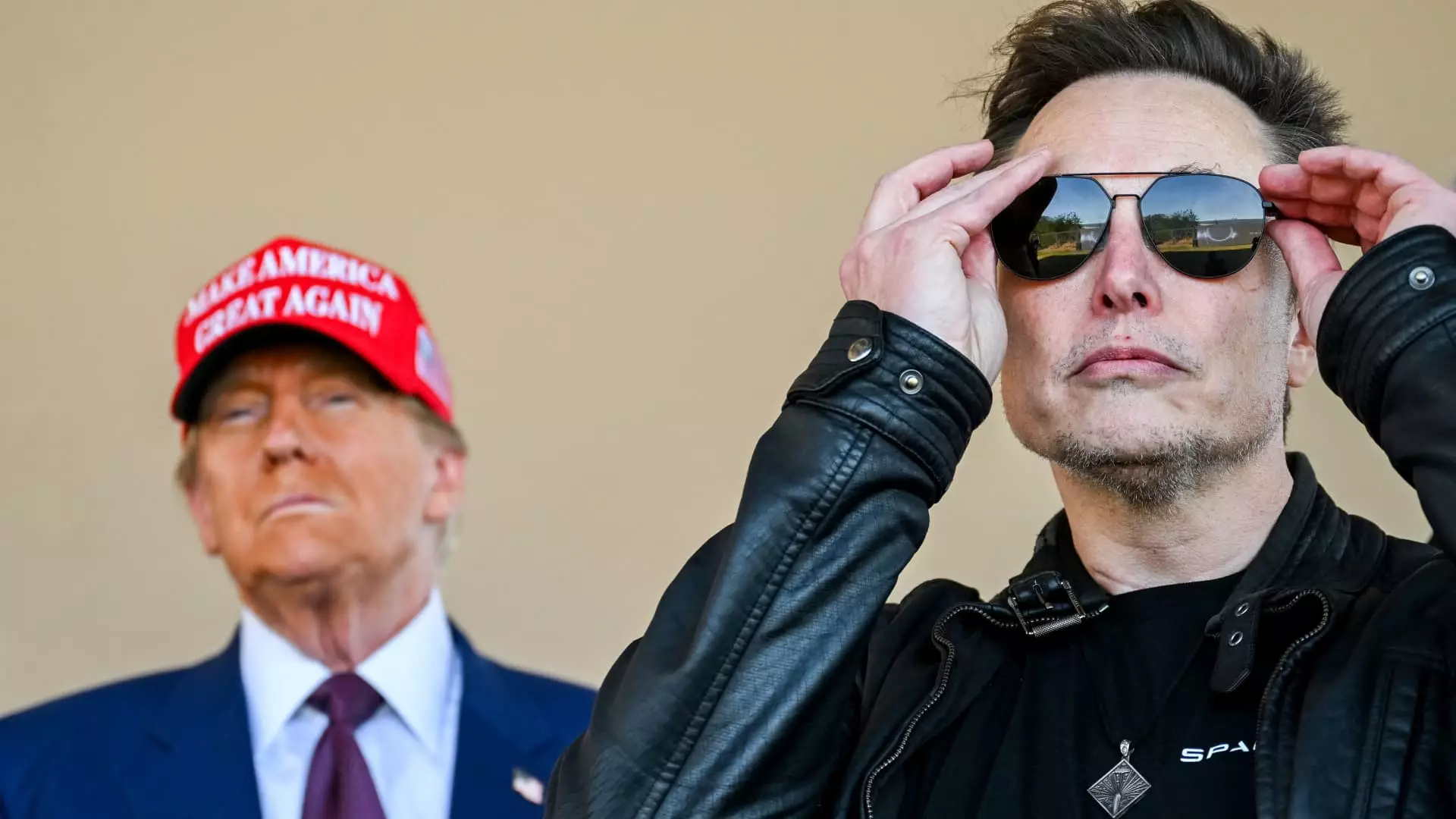As the dust settles from yet another narrowly averted government shutdown, an important debate has arisen within Congress—specifically concerning the influence of billionaire entrepreneur Elon Musk over political processes. With President-elect Donald Trump set to occupy the White House soon, the implications of Musk’s power in shaping political discourse warrant a thorough examination. Last week, Musk’s fervent social media activity was credited with significantly impacting bipartisan funding legislation, raising questions about the dynamics shaping governance in the United States.
In a striking incident, Musk utilized his platform, boasting over 208 million followers, to publicly oppose a comprehensive 1,500-page funding bill crafted by House Speaker Mike Johnson, R-La. His tweets, which included a vehement warning that legislators who supported the bill “deserve to be voted out,” reverberated through the halls of Congress. The alliance between Musk’s social media influence and Trump’s nascent administration led to a notable shift in the political landscape, compelling lawmakers to reconsider their positions.
Critics of Trump have seized upon this moment to underscore Musk’s perceived control over the Republican party narrative, labeling him “President Musk.” Such a characterization plays into a broader fear that private wealth and influence are dangerously amalgamating with public governance, effectively sidelining elected officials in favor of the whims of a billionaire. Musk attempted to mitigate these claims, emphasizing that Trump remains the “leader of the Republican party,” yet doubts linger regarding the extent of his sway.
Democratic lawmakers swiftly responded to Musk’s tweets and their consequent impact on the funding legislation. Figures such as Representatives Jim McGovern and Rosa DeLauro voiced concerns that the Republican party capitulated to Musk’s demands, potentially jeopardizing legislative independence. This suggests not only a struggle over policy priorities but also raises ethical questions about accountability among elected representatives.
Senator Elizabeth Warren articulated similar sentiments, firmly asserting that the public did not elect Musk to dictate governance policy. Such remarks reflect a growing unease that power dynamics may be shifting away from traditional elected representatives toward wealthy individuals who wield significant media influence. Warren’s criticism underscores a call for reasserting the integrity of democratic processes, which some perceive to be at risk due to external influences from business moguls like Musk.
While Democrats express alarm, some Republicans defend Musk’s involvement, framing it as a positive force for transparency. Senator Bill Hagerty praised Musk’s use of social media as a means to expose the insidious details often buried in legislative texts, stating that constituents have benefitted from the information Musk disseminated. Conversely, others within the party, like Congressman French Hill, refuted claims linking Musk’s interventions to the failure of the funding bill, insisting that party cohesion is essential given the current narrow majority.
Moreover, Congressman Tony Gonzales intriguingly suggested that Musk’s presence feels akin to that of a prime minister, echoing a sentiment of admiration for Musk as an authentic voice of the American people. This perspective reflects an unsettling normalization of billionaire involvement in political matters, raising the question of whether the voices of everyday citizens are being drowned out by those with exceptional financial clout.
In a candid assessment, Democratic Senator Chris Coons warned that the confusion and disarray experienced in recent legislative negotiations are likely precursors to recurring chaos as Trump takes office. The concern extends beyond partisan squabbles—instead pointing to a potential unraveling of the traditional balances of power and decision-making processes.
Coons’s warnings highlight the anxieties surrounding the consequences of having influential figures like Musk intertwining with the political realm, particularly in an era characterized by fast-paced social media dynamics. The senator aptly noted that the nation might soon find itself grappling with the unpredictability of “corporate social media influencers” impacting crucial legislative discussions.
Ultimately, as Congress navigates this complex landscape, a broader reflection on the integrity of the political process is imperative. As America braces for a new chapter under Trump’s administration, the intersection of wealth, power, and governance must be scrutinized to ensure that the fundamental tenets of democracy are preserved, and that elected officials reclaim their authority from the tycoons who now affect political maneuvering.


Leave a Reply